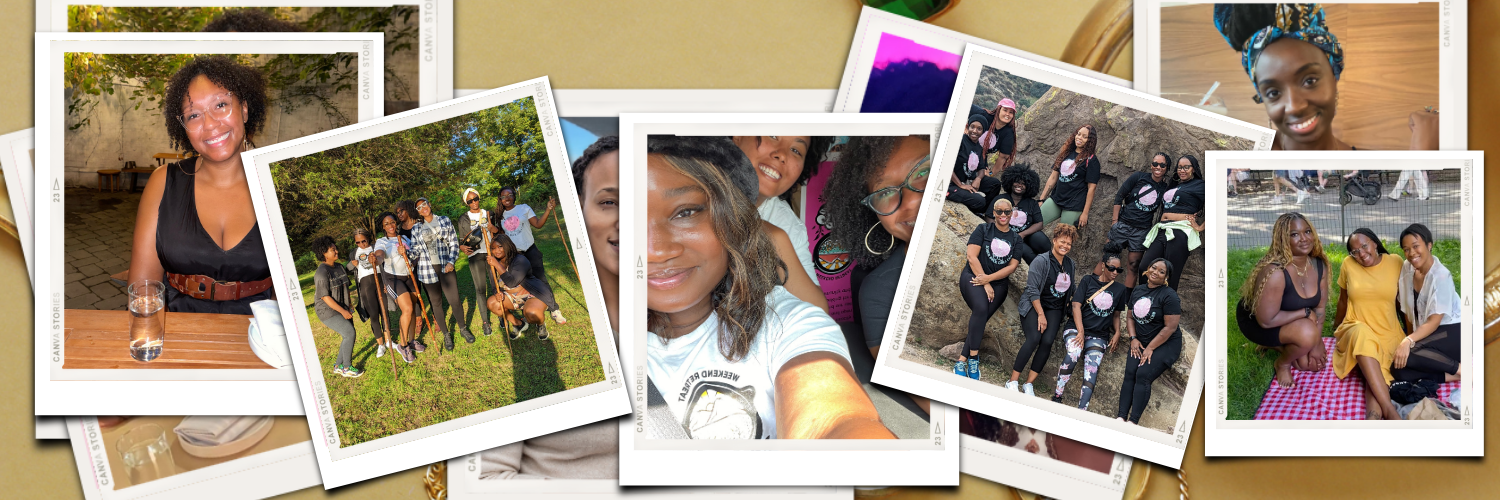January 31, 2024
by Khadi A. Oluwatoyin
In early recovery, it is not uncommon for folks to feel an overwhelming urge to hit the ground running, to immediately start “fixing” any perceived damage caused when they were drinking. The desire to reclaim what they feel is lost often leads to hasty decision making – starting lengthy degree programs, committing to intense fitness regimens, officiating budding romantic relationships, or diving headfirst into entrepreneurship. While there is nothing inherently wrong with any of these pursuits, in fact, they are all admirable in their own right. Rushing into them during early sobriety can inadvertently set the stage for burnout, undermining the very essence of recovery and creating a desire to escape.
At our first Club community meeting, the host, Brandon Anthony shared a revelation that I wholeheartedly agree with. He said recovery was half about recovering and half about (self) discovering and in my experience, many of us skip the first half (myself included) and jump straight into Velma Dinkley mode. We spend little to no time resting and recuperating, though we acknowledge the harm and damage our bodies experienced due to our drinking.
Now, I understand that many of us do not have the resources or support to spend the first six to twelve months of recovery out of work, sunbathing, and eating delicious, nutritious meals away from the hustle and bustle of everyday life. But we don’t need to make maintaining our sobriety more challenging by adding do’s to a list that on most days, feels unbearable and in a body that is adjusting to an existence without alcohol. We don’t have to punish ourselves by overextending and overexerting.
When we consciously or subconsciously create challenges around our recovery, we punish ourselves. However, recovery, itself, isn’t a punishment. We have done nothing wrong. The majority of us have made poor decisions when drinking, and have lost jobs, relationships, and opportunities as a result. There are even those of us who have paid fines or served time in jail. But for the most part, we have paid our dues and recovery just isn’t one of them.
If anything, recovery is recognition – an award for acknowledging what wasn’t working and doing something about it. Generally, awards bring a sense of sweetness and pleasure; not resentment and burnout.
Recovery is a marathon, not a sprint. In the fable of the Tortoise and the Hare, the slow and steady approach triumphs over the hasty dash. Similarly, embracing ease, grace and patience in early sobriety allows for a more sustainable and enduring recovery.
Grace is the gentle acknowledgment that recovery is a process, not a destination. It’s about treating oneself with kindness and compassion, understanding that the road to healing is like the ocean – bountiful but unpredictable. Like a sailor, you will have to be adaptable, flexible and open. Patience, too, is a necessary virtue—allowing time for reflection, rest, and gradual progress rather than immediate and intense change.
In a society that often glorifies overconsumption and mass production, it can be challenging for folks in early recovery to navigate a path of rest and recuperation. Here is some peer-to-peer advice:
Prioritize Quality Sleep: Maintain a consistent sleep schedule and create a relaxing bedtime routine. To fully recharge your body and mind, aim for 7-9 hours of sleep each night.
Practice Mindfulness and Meditation: Try mindfulness activities or meditation to reduce stress and calm the mind. Apps or guided sessions can help beginners incorporate these practices into their daily routine.
Disconnect from Your Screen: Give yourself designated periods without electronic devices, especially before bedtime. The blue light emitted from screens can interfere with your circadian rhythm, affecting the quality of your sleep.
Engage in Physical Activity: Incorporate regular exercise into your routine, whether it’s a brisk walk, yoga, or a workout session. Physical activity boosts energy levels and contributes to better sleep and overall well-being.
Spend Time in Nature: Take breaks in natural surroundings, whether it’s a park, beach, or hiking trail. Nature calms and can reduce stress levels, promoting rest and rejuvenation.
Set Boundaries: Learn to say no and establish clear boundaries to prevent burnout. Avoid overcommitting and allocate time for activities that bring you joy and relaxation.
Nurture Hobbies: Engage in activities you genuinely enjoy, whether it’s reading, painting, gardening, or any other hobby. These moments of pleasure contribute significantly to mental and emotional restoration.
Pet an Animal: Spend time petting and interacting with animals, as this has therapeutic effects on mental well-being. Whether you have a furry friend at home or visit a local animal shelter, petting animals releases endorphins and reduces cortisol levels, promoting relaxation and stress relief.
Connect Socially: Spend time with friends and loved ones. Social connections can provide emotional support and contribute to a sense of belonging, which is essential for overall well-being.
Take Short Breaks Throughout the Day: Incorporate short breaks into your daily routine to stretch, breathe, or take a brief walk. These pauses prevent mental fatigue and improve focus and productivity.
Hydrate and Eat Well: Stay hydrated and maintain a balanced diet. Proper nutrition plays a crucial role in your physical and mental health, influencing your energy levels and ability to cope with stress.
Waiting to reclaim is not a delay but an investment in your recovery’s longevity and fulfillment. By embracing ease, practicing patience, and navigating life with grace, you will not only heal the years of harm alcohol has done to your mind, body and spirit, you will thrive in a society that often values speed over sustainability.
—
Want to share your experience? We want to read it! Click here to learn how you can be featured on SoberBlackGirlsClub.com and how you can uplift others in the SBGC community.
— —
Did you enjoy this post? Please consider donating to the Club. Your support helps provide connection, support, and empowerment to Black girls, women, and gender-expansive folks practicing sobriety, in recovery, or considering it. Contributions are tax-deductible. https://soberblackgirlsclub.com/donations/



